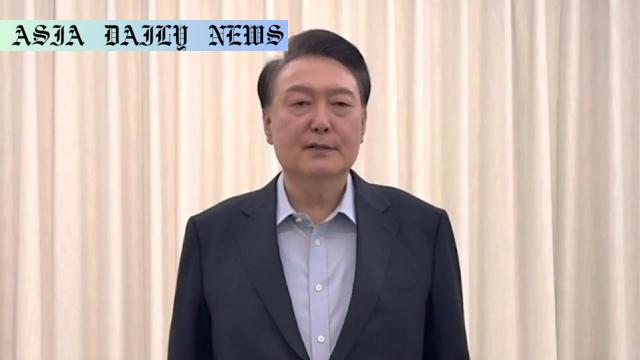Investigators explore legal measures to detain and interrogate South Korean President Yoon Suk-yeol.

South Korea finds itself embroiled in political controversy surrounding its President, Yoon Suk-yeol. The arrest and detainment of a sitting president on charges of declaring martial law and orchestrating an insurrection have left the nation and its political landscape in turmoil. The unfolding events mark a rare instance where the integrity of the country’s highest office has come under such scrutiny.
The ordeal began last month when reports indicated that President Yoon had declared martial law to consolidate power in an alleged attempt to suppress growing political opposition. This prompted a joint team of investigators, spearheaded by South Korea’s Corruption Investigation Office for High-ranking Officials, to launch a high-profile inquiry. On Sunday, the situation escalated dramatically when President Yoon was placed under arrest and later detained to undergo questioning.
Despite his detention, the president’s actions have further fueled the controversy. Officials reported that President Yoon complied with questioning last Wednesday but has since refused further requests. This refusal has left investigators in a legal quandary, as returning for additional interrogation is critical for the ongoing investigation. As of now, the president remains in a 12-square-meter solitary cell, where he has agreed to routine administrative measures, including allowing police officers to take his official headshot.
In a bid to move forward with the investigation, officials are now weighing various legal options to compel the president’s cooperation. One option includes visiting the detention center to carry out the interrogation, though this logistical approach faces skepticism due to its potential lack of efficiency. The more likely alternative, according to sources close to the investigation, is to forcibly relocate President Yoon to the anti-corruption agency’s headquarters.
The Justice Ministry has confirmed that the president will remain detained at least until February, providing investigators with a compressed timeline to extract critical evidence in their case against him. Legal analysts have pointed out the complexities of pursuing criminal charges against an individual holding the nation’s highest office, emphasizing the importance of maintaining judicial fairness while ensuring accountability.
South Korea’s political opposition has seized upon these developments, calling for thorough transparency in the investigation. Political analysts argue that how the nation navigates this crisis could set critical precedents for future leadership accountability within the country. Meanwhile, supporters of Yoon’s administration have claimed that these allegations are politically motivated.
The ongoing saga reflects mounting tensions and stark divisions within South Korea’s political framework. As investigators finalize their decision on how to proceed with questioning the president, the resolution of this case will have long-term implications for leadership, governance, and the upholding of law in South Korea.
Commentary
The political turbulence in South Korea stemming from the investigation of President Yoon Suk-yeol underscores significant challenges that democratic institutions face in holding leadership accountable. The unsettling allegations of martial law declarations and insurrection are not merely legal matters—they tap into the core principles of governance and public trust.
One critical question to ponder in this case is how South Korea’s legal system can delicately balance between impartial justice and the adverse political impact of prosecuting a sitting president. Governments thrive on stability, and having its leader embroiled in a high-profile investigation could create uncertainty. However, turning a blind eye to suspected misuse of power could delegitimize the office of the presidency and severely erode public trust.
From a citizen’s perspective, it is essential to advocate for transparency from all parties involved—both the investigators and the administration. The charges against Yoon, if true, are damning and could set an unhealthy precedent in terms of executive overreach unless met with the appropriate legal response. However, to avoid public perception of partisanship, the investigative process must demonstrate impeccable neutrality and adherence to due process.
It is equally pertinent to analyze the policy reforms that might emerge as a result of this crisis. An impeachment or conviction of an active president should serve as a wake-up call not only to South Korea but to other democracies emphasizing the need to implement mechanisms that prevent similar instances of potential overreach.
As the investigation unfolds, the international realm should remain watchful of how South Korea navigates this episode. Will the nation uphold its democratic principles and come out stronger, or will this lead to deeper fractures within its social and political framework? Time will reveal the outcome, but one thing remains clear—transparency, fairness, and accountability are the cornerstones for resolving this crisis.


